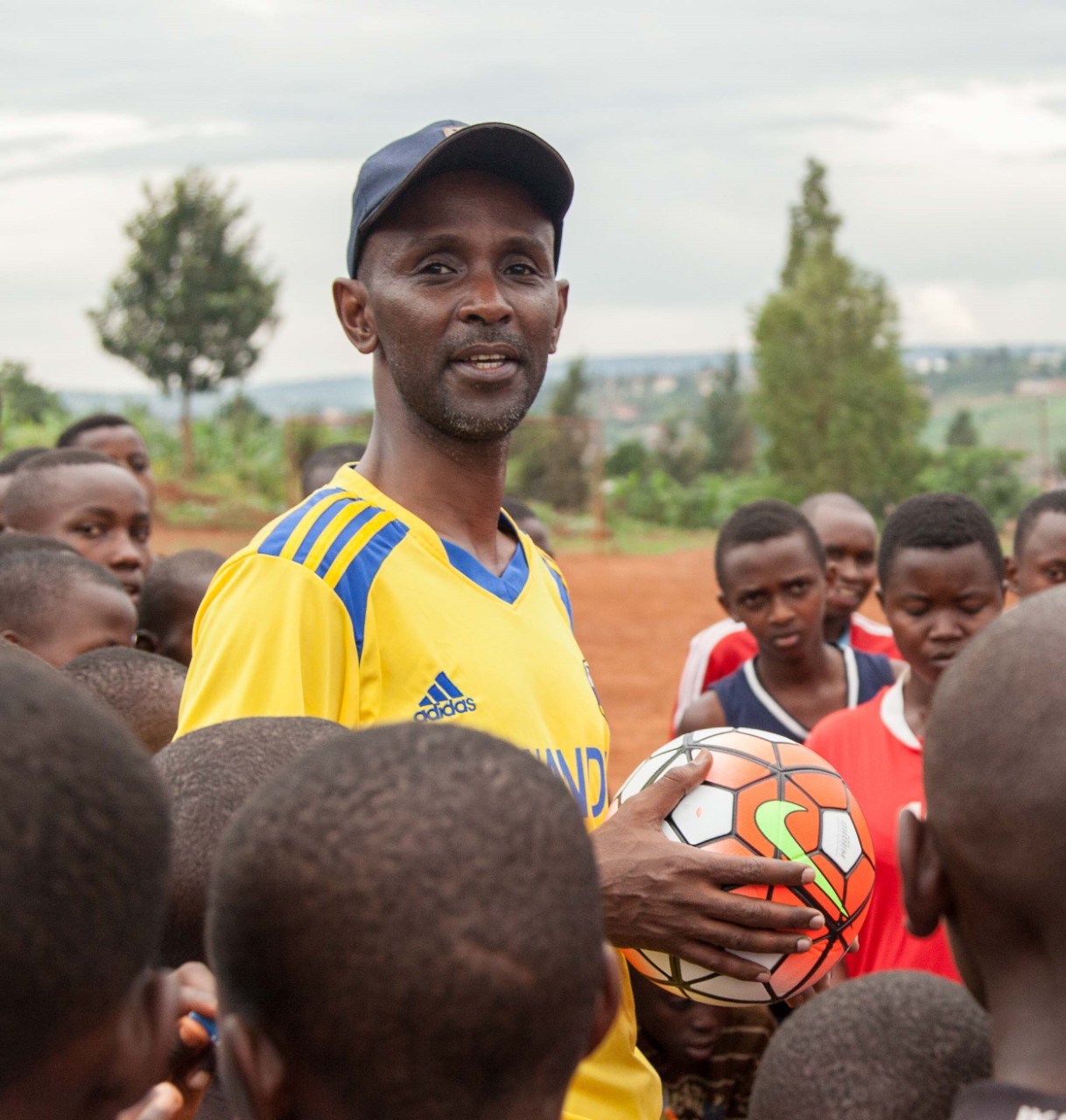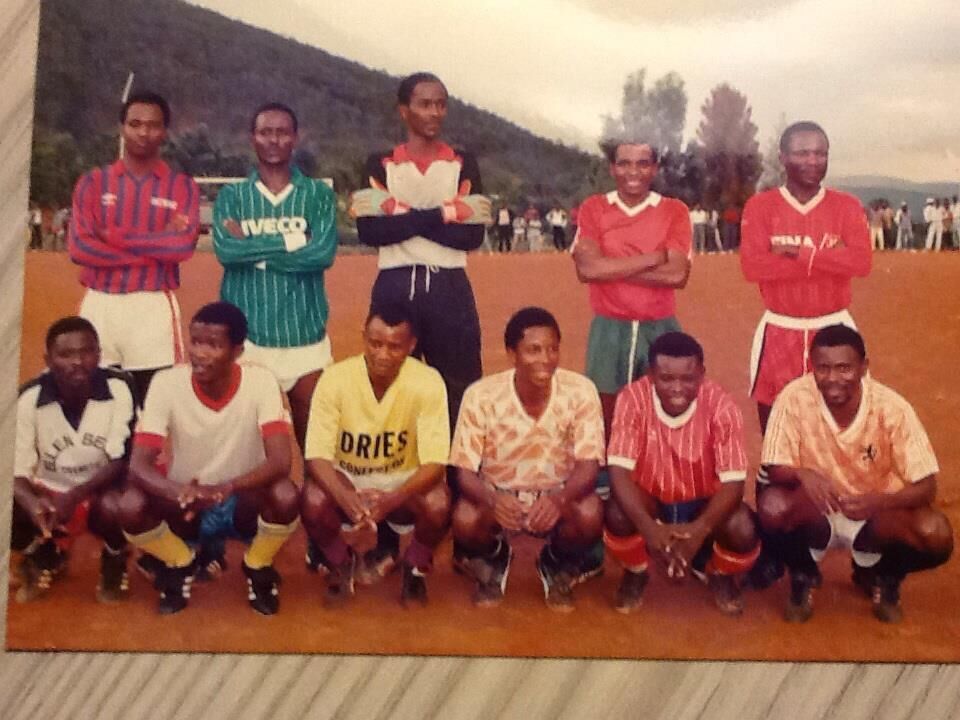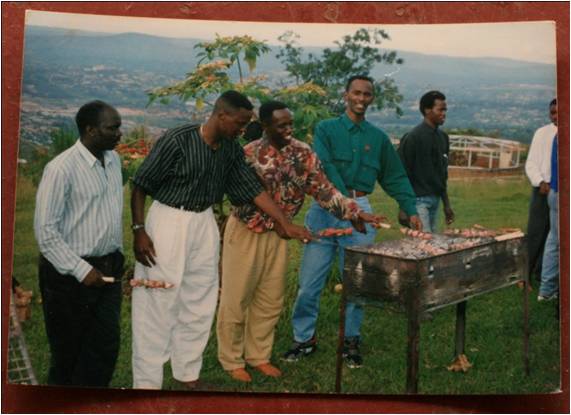
MESSAGE HEARD MEDIA HUB
Benched - Kwame Acheampong is the Snow Leopard
Benched - Kwame Acheampong is the Snow Leopard
This week on Benched, Kwame Acheampong sits down to talk to Carl Anka, a sportswriter and broadcaster, about his journey. Listen to hear how Kwame achieved his dream through hard work, support from the people around him and, most importantly, his never waning belief that he could do it.
Kwame Nkrumah-Acheampong had a dream: to the Winter Olympics to compete with the world’s best skiers. But in order to get there, he had to become one of the world’s best skiers himself.
As a Ghanaian, he was underestimated at every step and regarded more as a curiosity than someone with a serious chance at Olympic success. He learned to ski at an artificial slope in Milton Keynes on a dare and from then on his journey didn’t get any less unusual.
In order to qualify for the Olympics, he had to be part of Ghana’s ski federation but the problem was that there wasn’t one. So he created it himself. He needed sponsorships so that he could afford to train in the years leading up to the Games. So he walked into EasyJet’s headquarters, asked for one and got three years of unlimited flying across their network (with no luggage limits). This is how he got things done.
This determination of his is what gained him worldwide attention and made him famous as the Snow Leopard. This determination is what eventually got him to the Olympics. And now, years later, he is putting all his energy into skiing once again. His goal is to make Ghana a skiing country and to make everyone at home fall in love with winter sports. In the meantime, he is also training the next generation of snow leopards for the next Winter Olympics.
This week on Benched, Kwame Acheampong sits down to talk to Carl Anka, a sportswriter and broadcaster, about his journey. Listen to the latest episode to hear how Kwame achieved his dream through hard work, support from the people around him and, most importantly, his never waning belief that he could do it.
Benched - Johnny Greaves is Boxings Biggest Loser
Benched - Johnny Greaves is Boxings Biggest Loser
Boxer Johnny Greaves fought 100 professional fights throughout his career and lost 96 of them – and he’s proud of it.
Boxer Johnny Greaves fought 100 professional fights throughout his career and lost 96 of them – and he’s proud of it.
As a journeyman, Johnny was essentially an opponent for hire. Promoters would pay him - generously - to fight their upcoming prize fighters helping them cut their teeth on the circuit, build their confidence and get some wins under their belt. “No one told you to lose as such,” Johnny told us, “but your just a cog in the wheel for these home fighters building their record.”
“For every winner, there’s got to be a loser - and I was that loser. But I got paid pretty well for it.”
It’s also not in the interest of journeymen to win their matches. It deters promotors booking you, and in some cases can cause you to lose gigs you’ve already got in the diary. As a journeyman, Johnny took home over £1000 a fight compared to many boxers who struggled to break even from box office takings.
However, whilst occupying the so-called away corner came with its benefits - like higher pay - it also took its toll physically and mentally. In this week’s episode of Benched, Johnny gives boxing expert and sports writer, Mark Turley, a no-holds-barred account of his time in the ring. Listen to his story here.
Want to find out more about British boxing and the journeyman tradition? This weeks guest host, Mark Turley, wrote about in this Telegraph article and his book Journeyman.
Benched - Eric Murangwa Was Saved By The Beautiful Game
Benched - Eric Murangwa Was Saved By The Beautiful Game
Football saved Eric Murangwa’s life. And, not in a metaphorical way. His success as a goalkeeper for Rayon Sport, one of Rwanda’s biggest teams, was all that stopped someone ready to kill him. In this episode of Benched, Eric is interviewed by fellow goalkeeper, coach and sports journalist David Preece.
Football saved Eric Murangwa’s life. And, not in a metaphorical way. His success as a goalkeeper for Rayon Sport, one of Rwanda’s biggest teams, was all that stopped someone ready to kill him.
In 1994, the president's airplane was shot down setting in motion a brutal genocide that lasted over 100 days. As part of the Tutsi minority targetted by the militias, Eric’s life was at risk.
Eric with Rayon Sport in 1992
When his house was raided, a soldier brandishing a machete noticed photographs of Eric is his kit surrounded by his teammates. The soldier realised Eric was, in fact, the young Rayon Sport goalkeeper who had been fondly nicknamed Toto. This was enough for him to spare his life - but Eric was not out of danger yet.
Relying on the help of his Hutu teammates, Eric was moved from place to place - even spending time in the notorious ‘Hotel Rwanda’ before finding relative safety with help from the UN.
In this episode, Eric is interviewed by fellow goalkeeper, coach and sports journalist David Preece.
Listen to the full episode now to hear more about Eric’s incredible journey, his unwavering love of the game and how he’s now using football to help young Rwandans recover and reconcile with his foundation, Football for Hope, Peace and Unity.
Undiscovered - The Right To Die?
Undiscovered - The Right To Die?
Dying with dignity or playing god? Despite drawing a broad coalition of support on religious, medical and moral grounds, the question of legalising assisted dying in the UK remains unanswered. In this episode of Undiscovered, we meet people immersed in both sides of the debate - as well as someone for whom it is not a political concern, but a personal and immediate consideration.
Dying with dignity or playing god? Despite drawing a broad coalition of support on religious, medical and moral grounds, the question of legalising assisted dying in the UK remains unanswered. In this episode of Undiscovered, we meet people immersed in both sides of the debate - as well as someone for whom it is not a political concern, but a personal and immediate consideration.
This episode focuses on the specific debate around assisted dying. In a key distinction made by many campaigners, assisted dying applies to terminally ill people only, unlike the broader eligibility sought out for euthanasia or assisted suicide.
For those who support assisted dying, such as Barbara Coombs Lees, who helped legalise the practice in the US, and Ellie Ball, a campaigns officer at Dignity in Dying UK, this differentiation emphasises the empathy and compassion in helping someone already at the end of their lives, to end it without suffering.
However, those on the other side of the debate think the reframing of the issue is obscuring the mortal moral? reality of the act. In this episode, we hear from Phil Friend, from Not Dead Yet UK, who highlights what he believes are the risks for more vulnerable groups, such as the disabled community, who stand to be victimised by these laws.
For Patrick Wymer, the language used is less important. Since he was diagnosed with terminal bowel cancer in 2017, he’s thought deeply about the possibility of seeking an assisted death. He offers us perhaps the most balanced, human insight into what remains a deeply complicated debate.
Listen now to hear all sides of the story.
Undiscovered - The Art of The Heist
Undiscovered - The Art of The Heist
Across Europe, incredibly valuable pieces of Chinese art are disappearing from museums and personal collections alike. In our investigations into who is behind these Hollywood style heists - we explore a shadowy picture of government interests, criminal repatriation, and opportunistic hustlers.
Cat burglars, priceless jewels, elaborate heists. Thanks in a large part to Hollywood, art crime has a glamorous, even benign, reputation. But the reality is, it can actually have deep, dark links to other forms of organised crime. Noah Charney, Art Historian and author, referenced Isis, who looted and sold valuable antiquities to fund their terrorist activities, as an example.
This week's episode of Undiscovered asks: can such shadowy motives be tied to a spate of heists targeting Chinese art? Or, is there another explanation hiding in plain sight?
Starting in 2010, the robberies have targeted high-end collections across Europe ranging from the Swedish Royal Residency to The Fitzwilliam Museum in Cambridge. In each case, Chinese art was specifically targeted, even when other valuable pieces were nearby. Even stranger, much of the stolen art has been tied specifically to Beijing’s Old Summer Palace which was looted in 1860 by British and French troops.
In China, the events of 1860 have become a national scar. It’s one of the key events, along with other attempts by powers to colonise and plunder their land, that makes up what they call the ‘Century of Humiliation’ (1840-1849). The Old Summer Palace, which has been preserved in it’s ransacked state, remains a public and potent symbol of both past indignity but also the immense progress made since Second World War.
“Two robbers breaking into a museum, devastating, looting and burning, leaving laughing hand-in-hand with their bags full of treasures; one of the robbers is called France and the other Britain.”
Victor Hugo, On the looting of the Old Summer Palace
In contrast to that time, China now wields awesome financial and geopolitical power - it’s is home to more billionaires than any other country. This has had an impact on the rising interest in repatriating Chinese art by purchasing it from foreign collections. In this episode, we hear how people like Liu Yang of the Yuanmingyuan Institute ("Yuanmingyuan" is the Chinese name of the Old Summer Palace) are trying to return these pieces to China legitimately; unpick the economic, cultural and ideological factors which muddy the water around these heists as well as and how they interplay with a larger debate around repatriation.
Undiscovered - What Happened At Unit 731?
Undiscovered - What Happened At Unit 731?
At Unit 731, one of the largest covered up atrocities of World War 2, the Japanese army conducted human experiments using both chemical and germ weapons on living prisoners. We grapple with what actually happened and how it still affects Japan - and the world - today.
At Unit 731, one of the largest covered up atrocities of World War 2, the Japanese army conducted human experiments using both chemical and germ weapons on living prisoners.
However, unlike the Nazis, there were no repercussions for those responsible.
In today’s episode of Undiscovered, we grapple with what actually happened and how it still affects Japan - and the world - today.
Japan’s invasion of the Chinese province of Manchuria is somewhat of a forgotten theatre of the Second World War, in part because the conflict began in 1931 - eight years before Germany invaded Poland.
Records show experimentation began at a site in Ping Fan, near Harbin, in the mid-1930s. The program, which operated under the pseudonym Epidemic Prevention and Water Purification Department, performed experiments on male and female prisoners - most of whom were Chinese or Korean.
In this week's episode, we spoke to two men, Professor Takao Matsumura and Professor Yuki Tanaka, who have spent their careers researching and publishing about Japanese war crimes. In conversation, both detailed the resistance their research about Unit 731 faced and how the crimes are still not widely taught in Japan today.
We explore all these factors, and the stories behind the research into them, in today’s podcast - listen now.
Find out more:
The documentary we reference in the podcast, Unit 731 - Did the Emperor Know, can be viewed at the BFI archives.
A documentary on Unit 731 currently available on Amazon Prime.
And if you want to know more about the Asia-Pacific war more generally - the fastidious Dan Carlin has a 4.5 hour podcast for you.
Undiscovered - Satanic Panic 2.0
Undiscovered - Satanic Panic 2.0
Much like any other belief set, acts of both unspeakable evil and charitable good have been performed under the banner of Satanism.
In today’s episode of Undiscovered we explore both sides to this story.
Much like any other belief set, acts of both unspeakable evil and charitable good have been performed under the banner of Satanism.
In today’s episode of Undiscovered, we explore both sides of this story.
We’ll look more closely at two vastly different world-views: the perspective of those who have suffered abuse at the hands of Satanists and those who believe the rituals and iconography of Satanism can be re-appropriated to build a positive and welcoming community.
In the UK, there is currently no explicit law against Satanic Ritual Abuse (SRA). Victims of SRA and their allies, like Vicky Ash and Wilfred Wong, who we spoke to in this week’s episode, are campaigning to change this. They argue there should be a specific focus on the satanic dimension of the abuse, and punishments that recognise that the name in which these crimes are perpetrated is important as the effects are uniquely traumatising.
There is also a conspiratorial dimension behind their activism. As they fight so hard to have their experiences recognised - our interviewees reported that it feels as if there is a powerful force, a secret group of society's elites, stopping them from getting the justice they deserve.
This idea of secret cabals is in direct contrast to an open, and even performative, brand of Satanists like Zeke Apollyon - High Cardinal of the recently rebranded Global Order of Satan. In the second half of the show, Zeke lays out their philosophy which challenges many negative associations with the occult - whilst leaning into its visual, verbal and ritual motifs.
Tune in to the episode to find out more about these competing, but by no means mutually exclusive, understandings of Satanism.
Undiscovered - The Lion, The Bear and The War Zone
Undiscovered - The Lion, The Bear and The War Zone
This week on Undiscovered, we hear the story of a bear, Lula, and a lion, Simba, who were abandoned in Mosul Zoo during the chaos of Isis occupation and the battle for liberation.
If you feared for your life, would you stop to consider the lives of animals?
In the chaos and destruction of war, the impact of human conflict on animals is easily overlooked. Fortunately, there are people like Dr Amir Khalil who have made it their lives work to rescue forgotten animals from conflict zones.
This week on Undiscovered, we hear the story of a bear, Lula, and a lion, Simba, who were abandoned in Mosul Zoo during the chaos of Isis occupation and the battle for liberation.
You can listen to the entire story now.
Dr Khalil works for charity the international charity, Four Paws, who fight cruelty to animals worldwide. They have saved animals from war zones all over the world including Bosnia, Egypt, Zimbabwe, India, Gaza and Libya. According to The New Yorker, each mission costs tens of thousands of dollars.
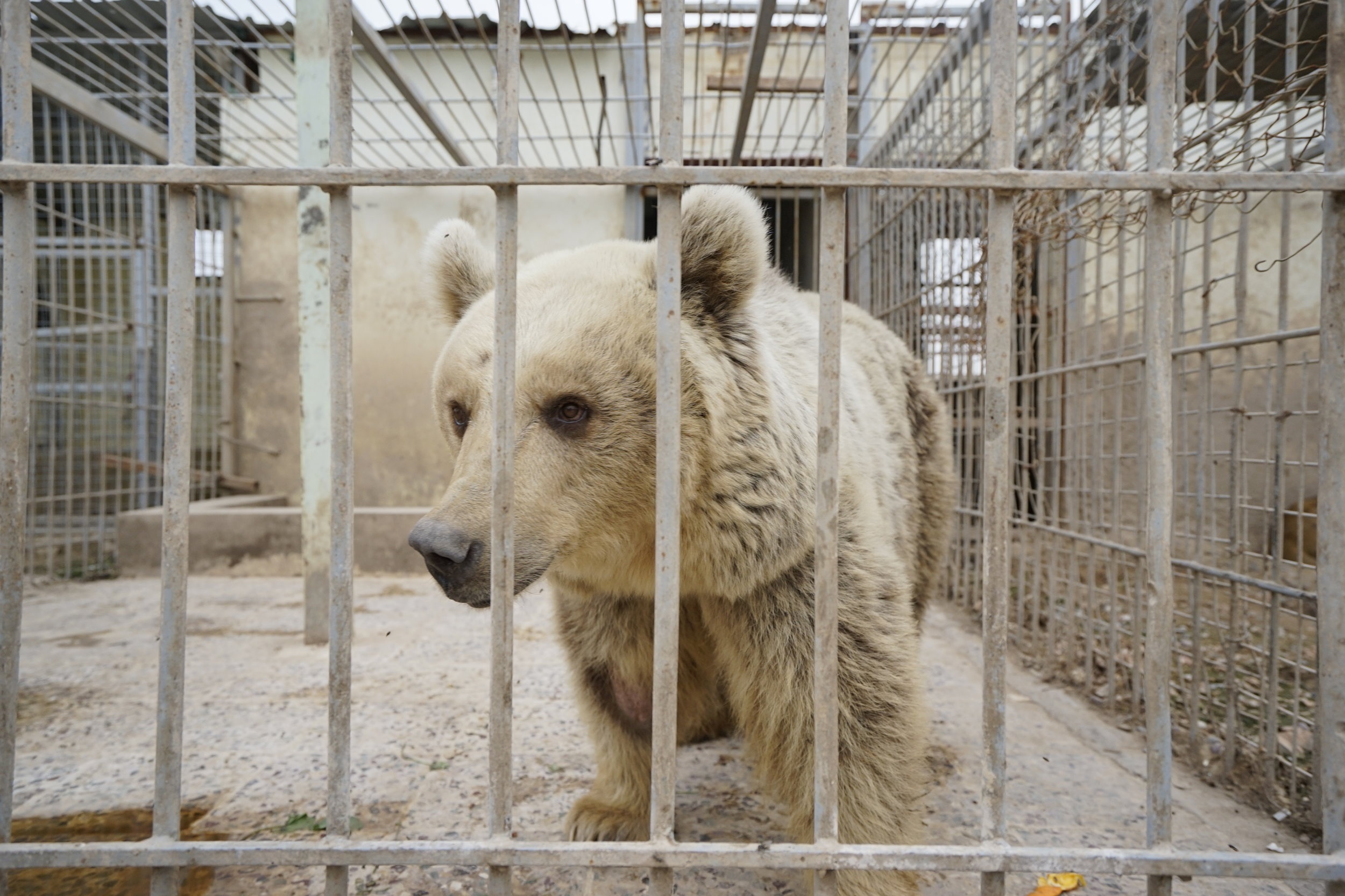
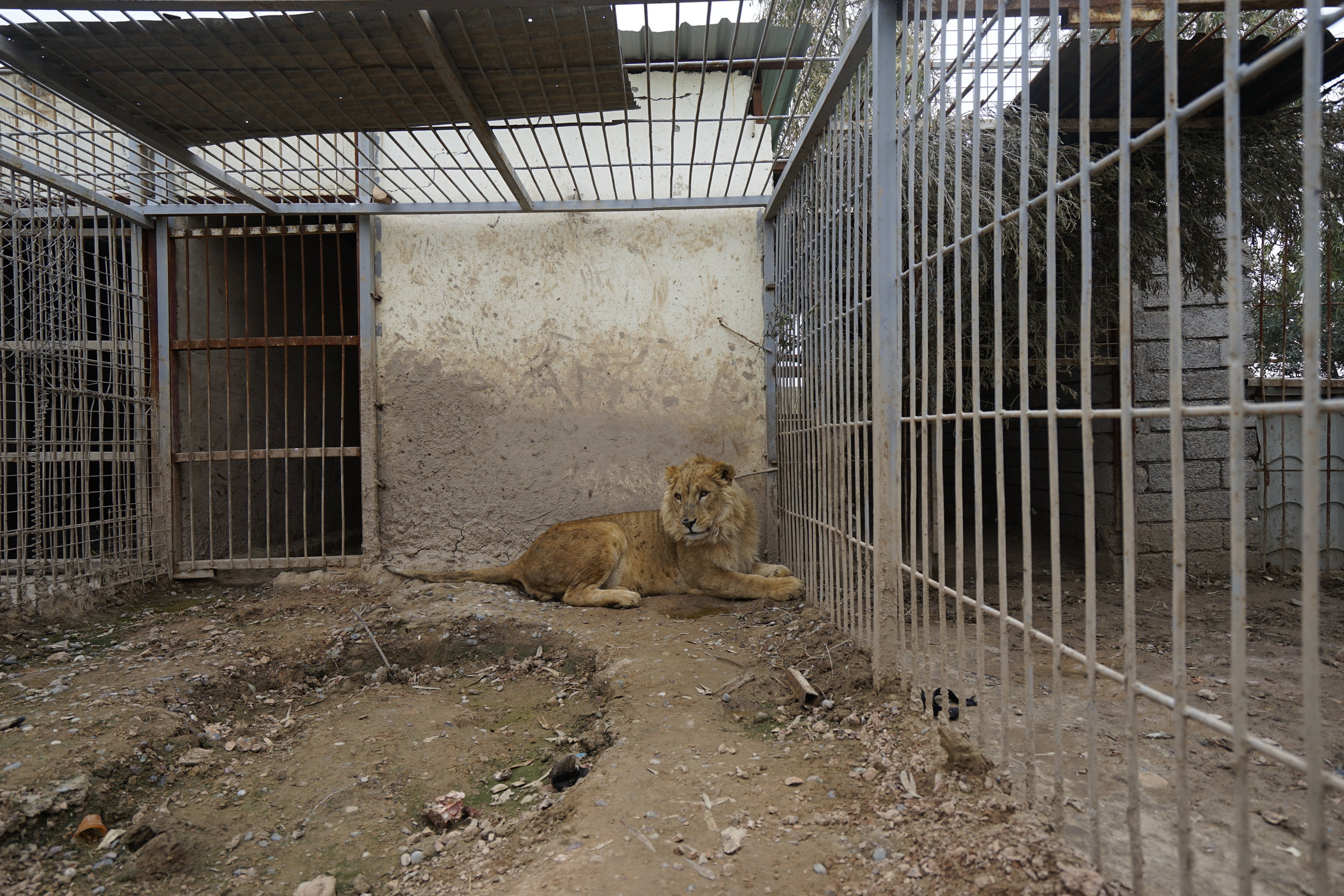
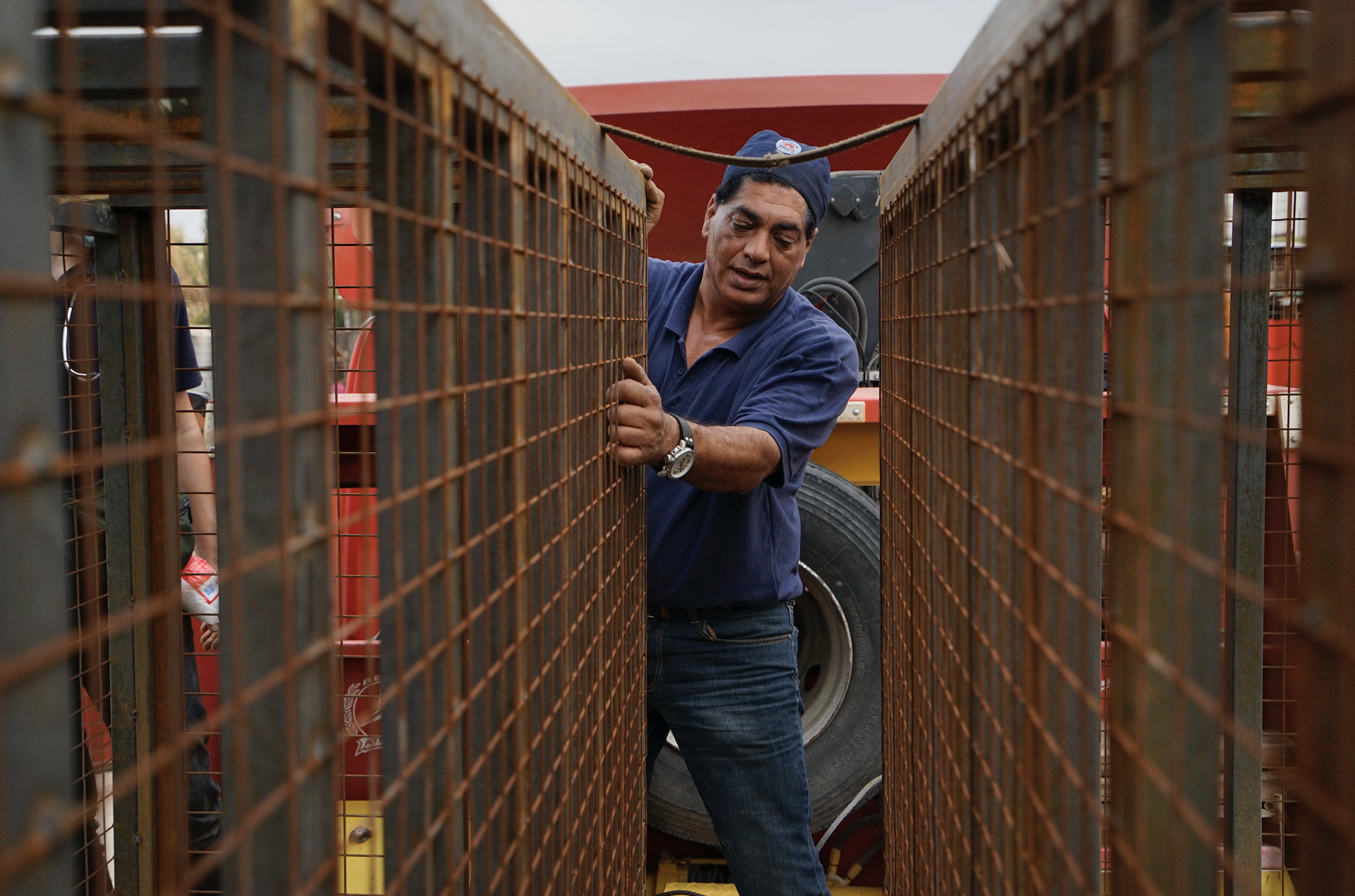
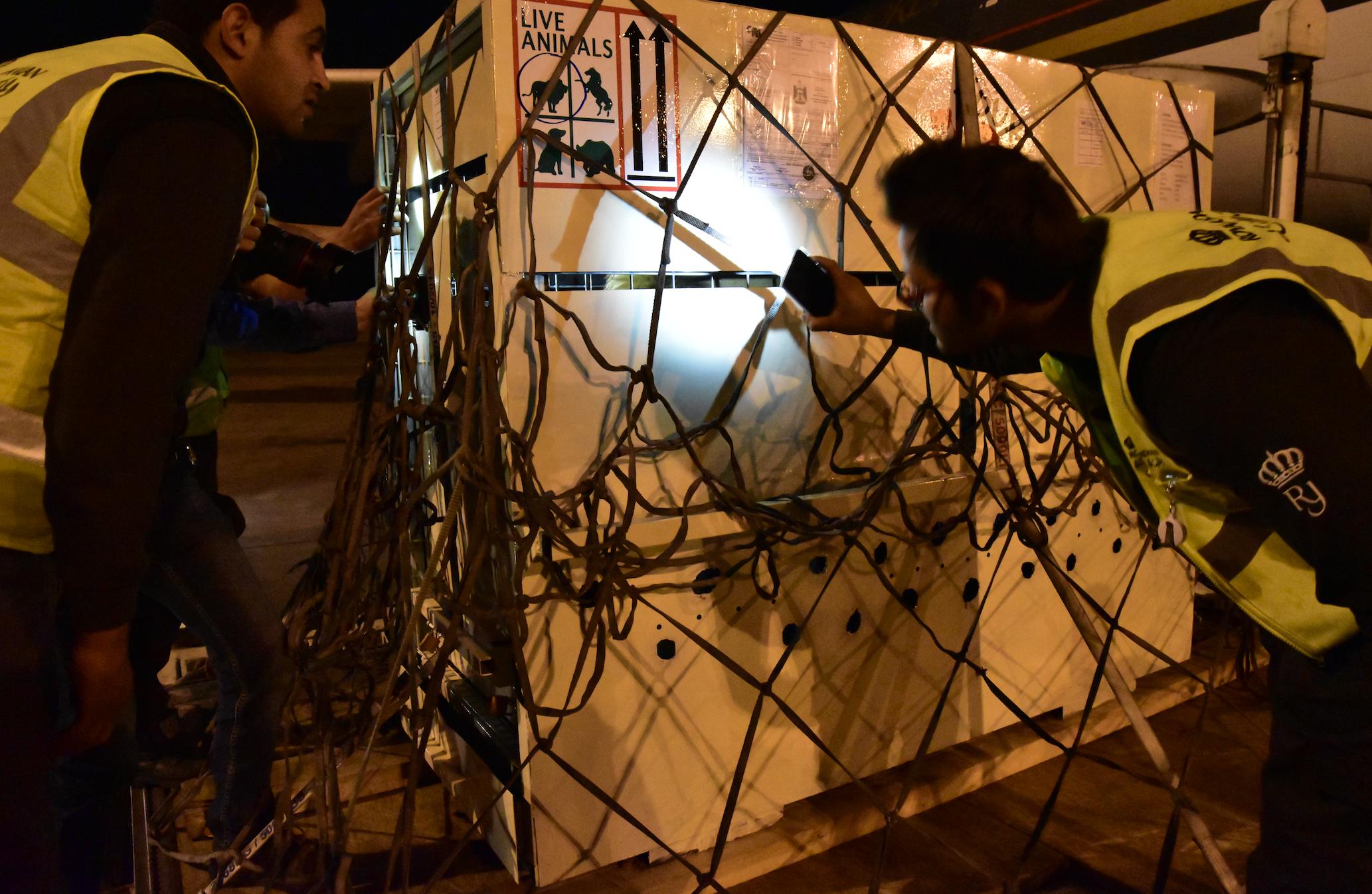
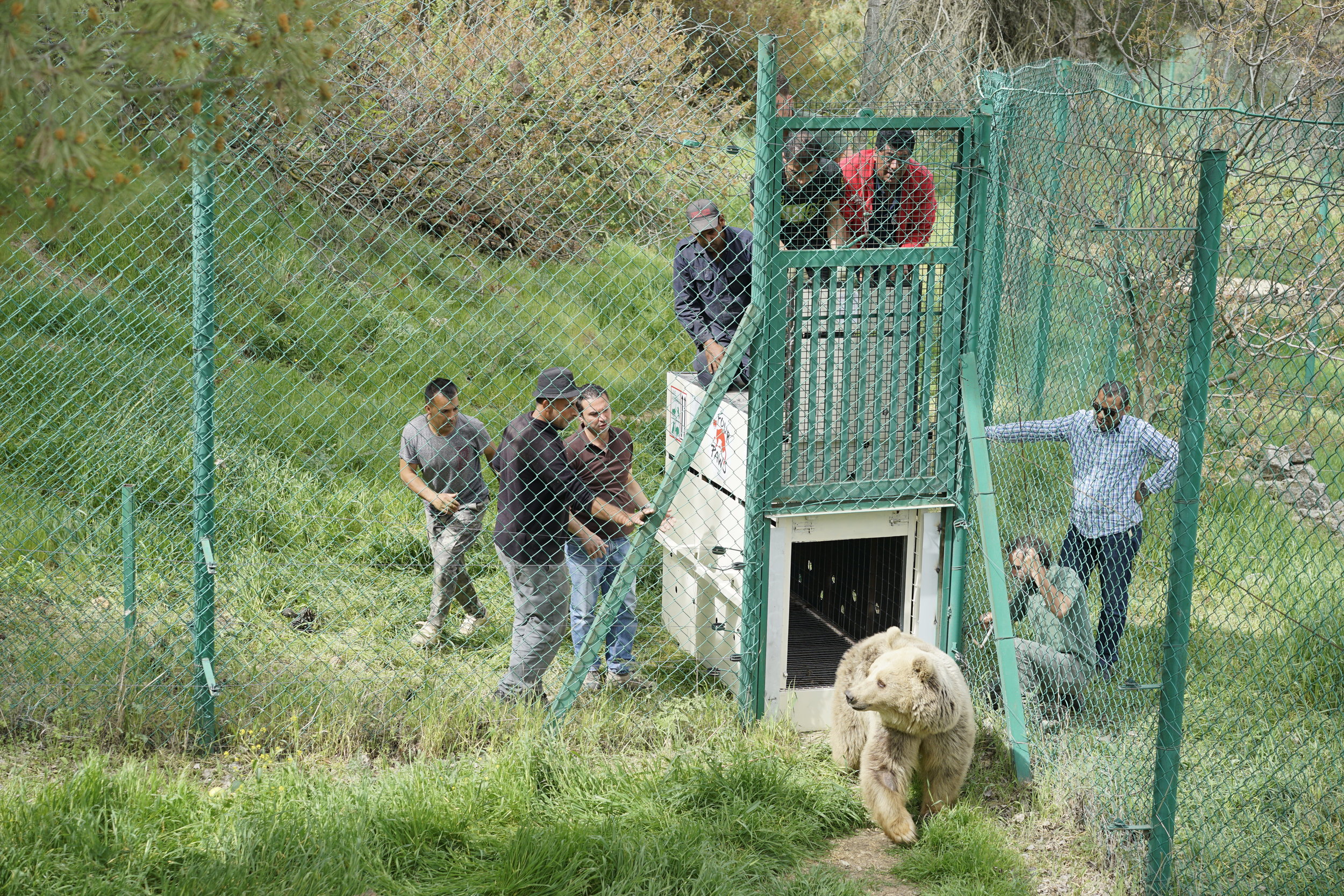
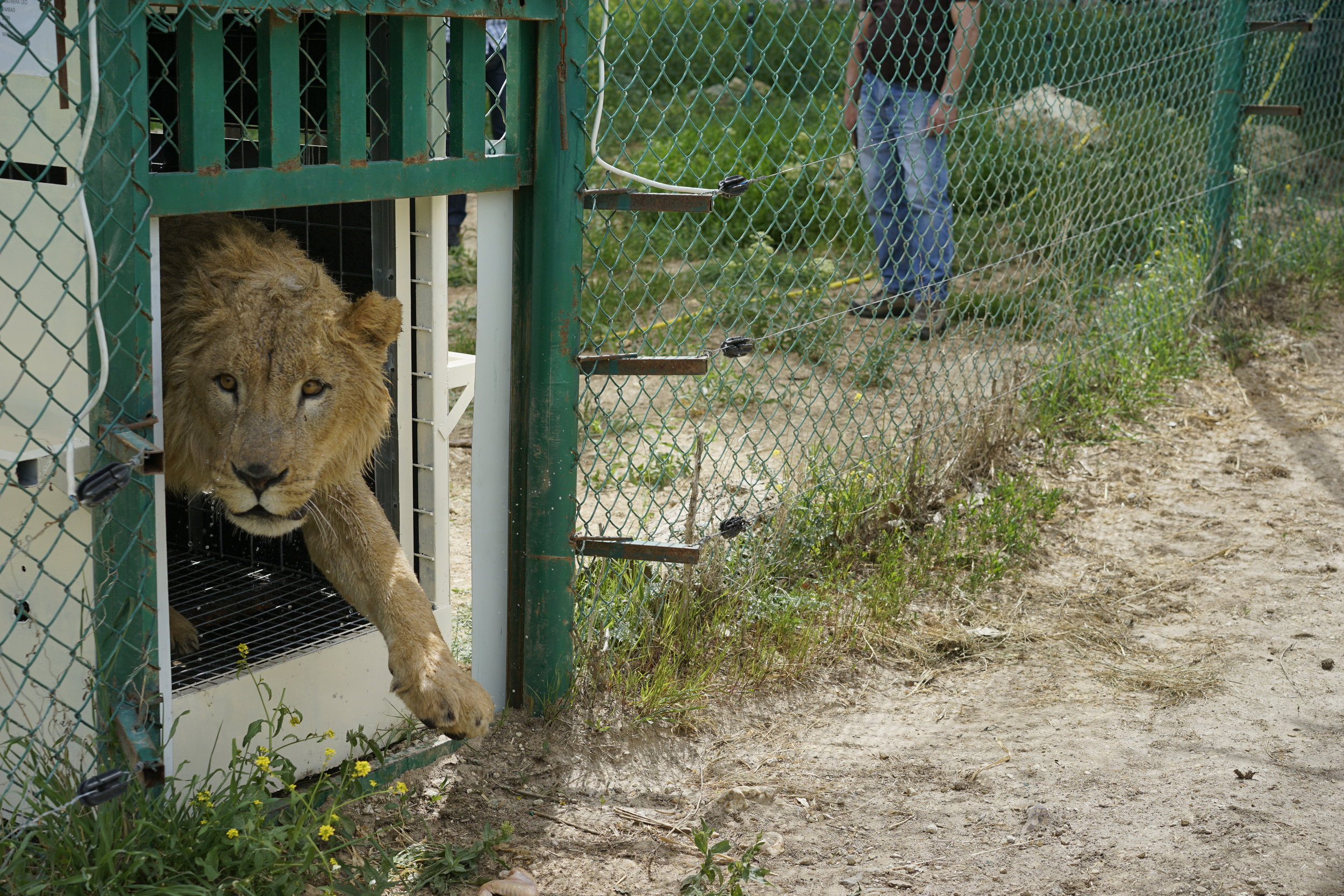
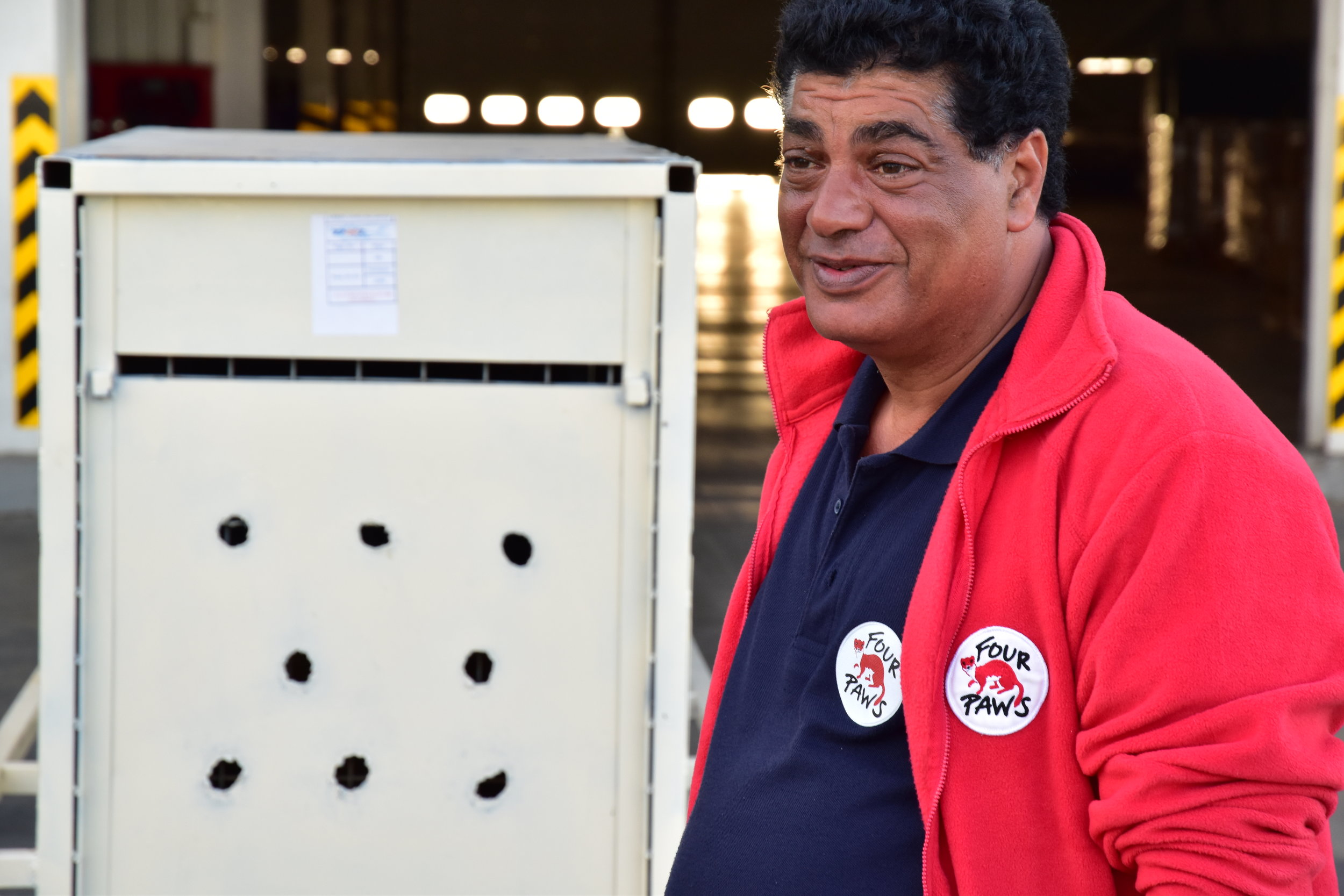
Based on the success of the mission in Mosul, there was a campaign for the charity to come to the aid of a Zoo in Aleppo, which similarly abandoned amid conflict. There they rescued another Lion, Saeed, who is believed to have been born in captivity during the war in Syria. As of February 2018, Simba and Saeed have been moved to their ‘forever home’ in South Africa.
As for Lula, she is still based in the Jordanian wildlife rescue centre “Al Ma'wa for Nature and Wildlife” where her and Simbia were originally evacuated too. She seems to be doing very well.
This is the second episode of our new series Undiscovered - a podcast that cuts through the noise in your newsfeed.
Listen to the whole episode, subscribe and catch up on episode one here.
Undiscovered - Where is Joseph Kony in 2019?
Undiscovered - Where is Joseph Kony in 2019?
In the first episode of Undiscovered, we find look beyond Kony 2012 - taking a look at the vast network of people and organisations that invested in capturing the war lord.
In 2012, a viral video from an American filmmaker made Joseph Kony a household name.
The campaign, ran by Jason Russell and his charity Invisible Children, had a clear goal: make Kony famous.
In only six days, Kony 2012 had become the most viral video of all time with 100 million views. The once obscure Ugandan warlord was plastered across Facebook and Twitter. The campaign was covered by media outlets far and wide - from CNN to Alex Jones.
Mission accomplished? Perhaps not.
Seven years, and $800 million dollars later, he still hasn’t been caught or held accountable for his crimes.
This week on Undiscovered, we find look beyond Kony 2012 - taking a look at the vast network of people and organisations, including the International Criminal Court and President Obama, that invested in capturing the war lord.
In this episode we speak to filmmaker Jason Russell, explorer Robert Young Pelton, conflict analyst Sasha Lezhnev and National Geographic producer JJ Kelley to find out the full story.
This is the first episode of our new series Undiscovered - a podcast that cuts through the noise in your newsfeed.
Listen to the whole episode and subscribe for more here: http://bit.ly/2HMNJNE
Conflicted: Our First Original Podcast
Conflicted: Our First Original Podcast
Message Heard’s first original podcast, Conflicted is a unique offering for UK podcast fans that combines the intimacy of long-form interview with high-level political insight.
Last week, we released the first of a six-part audio series, Conflicted.
Message Heard’s first original podcast, Conflicted is a unique offering for UK podcast fans that combines the intimacy of long-form interview with high-level political insight.
Each week, hosts Aimen Dean and Thomas Small take us step by step through the conflicts that have embroiled the Middle East since 9/11 - illuminating the geo-political complexities through the prism of their unique personal experiences as they go. This odd couple , one a former Al Qaeda bomb-maker, the other a ex-Greek Orthodox Monk, find unexpected common ground as they grapple with fundamentalism, terrorism and the global implications of their lived experience.
They even manage to see the funny side of having a fatwha on your head along the way.
It’s been an exciting first week. The show’s been featured on Apple Podcasts – climbing up to number 8 on the news and politics chart, and 31 on the overall shows chart. After months of painstaking production, it’s exciting be seeing people react and engage in real time.
Episode two is out today – with a new episodes being released every Wednesday. Listen where ever you get your podcasts.






